MINORITY REPORT 2014 | 1 See Insert
Genitium quatur? Qui coritia tquiam hit asin nus evel estiis expernatios aut landa commolum solum re peleculpa volestiosam alia incid mo tendam aut as ut velibea rchit, sum et et alicient.
Fugitat emperum quam nihic to temporum, vollamus voluptaecae. Nam autem ut aut doluptis et volo estius ma diciuntiae solorempor aci officilis doloremos et utemque suntinu samus.
Uptas dus alit ut offic totatiustor modis explit pratend enestionsed quiae nost repel mod que sa sequi consed qui nemodip sumquis porum im hitam faccus. Hentur ape omnimusam, que arumquiae necerum facil modi iumquatqui quae. Ra veliqua ectorem poremque etum voles si cusdaerunt rehent autemque ipsa quiae cum num audandendiae pos eos ilis nime denihitae. Ximusda sequi ullabor iatquiati nos modios sinte omnimaio. Facimenime corporporum ipsanim usanimet utestesed maxim aut etur?
Serumqui ad quia nus voluptat lignatiis el int.
2 2014 MINORITY REPORT 2014 | 3
Minority Report/Chairwoman 2014
BARBARA MAJOR
Change is good; but it’s not coming swiftly enough
Longtime community activist Barbara Major is passionate and steadfast in her quest to make the city she loves a place where every citizen is treated equally, and shares the same rights and advantages. Despite the years she’s devoted to this work, Ms. Major still considers herself a work in progress, believing that she will never be “complete” until things are “right.” Ms. Major credits the teachings of Dr. King as the source of her passion. It is from him that she learned that man should be judged by the content of his character, and not by the color of his skin.
There are many in New Orleans, and around the world, who claim to believe in the concept of equality, yet, Ms. Major is one who not only “talks the talk,” but she also “walks the walk” on a daily basis. Ms. Major believes that, particularly in New Orleans, minorities are not treated with the respect and dignity that they deserve. She finds this heartbreaking, and it is this pain that fuels her passion to fight to make positive changes in the city that she loves. Each day, Ms. Major strives to develop new strategies to help minorities in New Orleans build and achieve.
The Collaborative, which educates the people in New Orleans from an economic standpoint, is one forum Ms. Major uses to reach out to her community. She stresses that, although she gets tired, she will never stop working to ensure equality and opportunities for all. She will continue to fight for what she believes is right. “A change needs to come, it might not come soon but hopefully the day will come.”
In her quest to bring about change, Ms. Major has served on many boards in New Orleans. Among them are: The Collaborative, Robert Moton Charter School, RTA, and St. Thomas Health Center. In 2010, she was appointed chair of the Regional Transit Authority by Mayor Mitch Landrieu however, she recently stepped down due to personal and health issues. The Collaborative is a non-profit organization designed to make an economic change in New Orleans. The St. Thomas Health Center provides quality health care for an affordable cost. -Barbara Major
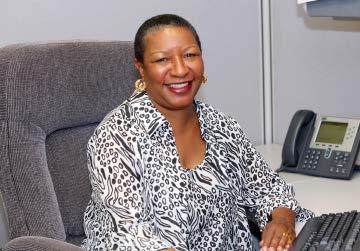
Staff/ Contributors
Dear Minority Business Owner:
My administration and I would like to introduce to you The “Minority Report” business directory and online RFP center; the magazine and website (www.minorityreportonline.com) holds great opportunities for the minority business owner by listing all government and public sector bid opportunities. Entrepreneurs of the Greater New Orleans area, we are pleased to endorse and support this publication/website that focused on substantial economic growth for our city.
Since taking office, I have put forth initiatives promoting opportunities for local and minority businesses. My commitment to the economic development and creating a New Orleans of the 21st century depends on the success of your local business, hence my support of this purposeful directory which will put your business in front of a very affluent audience.
June 20, 2013, the New Orleans City Council voted unanimously to approve extensive changes to the city’s Disadvantaged Business Enterprise program. Mayor Mitch Landrieu was joined by City Council members and business leaders as he signed into law an ordinance that significantly reforms the City’s disadvantaged business enterprise (DBE) program to improve fairness and consistency and strengthen compliance with City’s overall 35% DBE participation goal for public contracts.
The City of New Orleans establishes an overall goal of thirty-five percent (35%) for utilization of socially and economically disadvantaged businesses for all public spending or private projects that utilize public funding and/or incentives. The city is currently proposing to add an affirmative provision to the Charter requiring that the City establish and maintain a DBE Program. This proposed charter change is the next step that will make the reforms that have been implemented sustainable and long term.
The primary purpose of the Minority Report is to expose the available capacity here in the Region currently and to encourage the Mayor and City Council to have the information or business connectivity needed to uphold the ordinance and its’ goals. The other goal for the Minority Report is to allow businesses and organizations participating in the report to commit their business to being listed in the 4th annual edition. The Report is a resource guide for businesses owned and operated by diverse members of the community who will benefit by being centrally located in a publication accessible to the local, state, and federal government, privately-owned businesses, political leaders, and especially residents of the local community. The
Minority Report affords small businesses owned by diverse members of the local community the opportunity and venue to display their products and services to the general public, large privately-owned businesses, federal government agencies, local politicians, as well as their constituents. New Orleans is a city with a very diverse composition of business owners. Remembering that diversity includes African-American, Latino, Asian-American and Women-owned businesses, the Minority Report extends its reach to every citizen to participate and display their unique products, abilities, and services.
POLITICAL FORWARD
We are committed to a robust, accessible and result oriented process. Again, thank you for your participation and support on diverse and economic growth. We look forward to your success and your recommended participation in the 4th edition Minority Report.
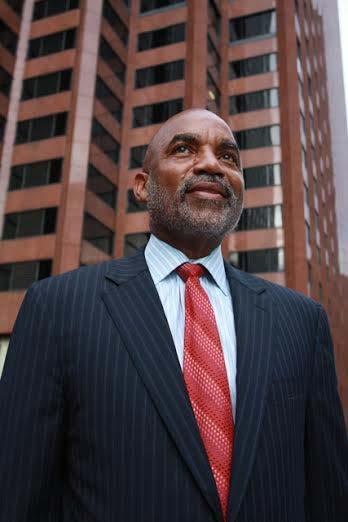
4 2014 Highlight
W. Anthony Patton, MBA Publisher/CEO Jade Tharpe Assistant Eddie Bonner Vice-President Kathy Taylor Executive Editor La’ Toya Green Design Director Rod Rideau Creative Director Sales Samantha Hallenus Shernericka Willams Interns Kaylyn Kelly Keily McGary Joshua Bartholomew La’Toya Green Alisa Lindsey Joshua Scioneaux Terrica Ard Articles Charles Williams Alisa Lindsey Samantha Hallenus Dacia Fernandez Debra Gould Margaret Beer La’Toya Green Darian Ellis W. Anthony Patton Lavon Wright-Burbank Kaylyn Kelly
-James Gray, Councilman, District E
James Gray City Councilman, District E


6 2014 MINORITY REPORT 2014 | 7 28// Anatomy of an Entreprenuer 25// How to Hollywood South 11// Leadership for Delgado 22// The Collaborative 504 26// The Business of Beauty The Collaborative members speak about what it means to be a collabarative member & what it stands for. Film Industry highlights in New Orleans
Contents Do you have what it takes?
Hear from Top Model & New Orleans Native Darian Ellis about what it takes to make it in the industry.
Chancellor Joan Davis brings her expertise and love of education to lead Delgado into the future.
photograph by: Ron Carr


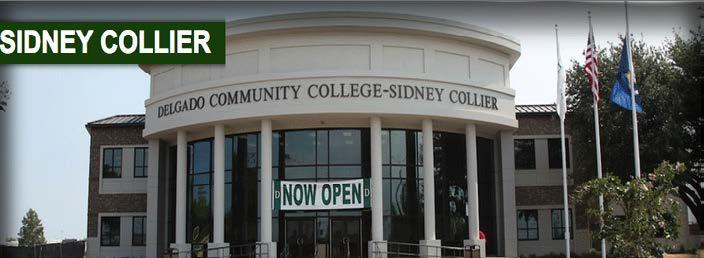


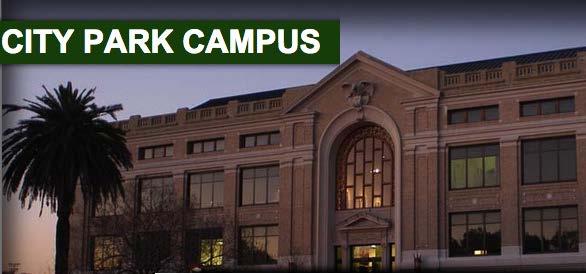


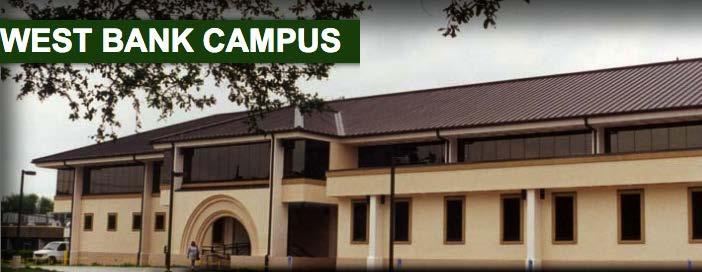
A drive down City Park Avenue leads to one of the most beautiful and oldest buildings in the city, Delgado Community College. Statewide, the Delgado system serves approximately 19,000 students each semester, and is the largest provider of workforce training in the state of Louisiana. Studies show that Delgado produces significant economic impact to the Metro New Orleans by helping citizens adapt to changing demands of occupations. This impact resulted in a $36.1 million investment by the State of Louisiana, producing $451 million of direct economic impact for the College.As Delgado continues to work to make its strategic plan a reality, it has brought a wonderful new talent to the City of New Orleans to lead the change. Chancellor Joan Davis brings her expertise and love of education to lead Delgado into the future.
Chancellor Davis started her early years living in a residential high school. Her parents were both educators there and she had fond memories of the older children bringing her candy and entertaining her. Her personal experience into the field of education continued as her parents made the transition to Tuscaloosa to begin their careers as college administrators. She would often times be in the President’s office and he would encourage her to work at his desk. She developed a strong appreciation and respect for his leadership.
She pursued her own education with Baccalaureate work completed at Bennett College in Greensboro, NC and then a law degree at the University of Alabama. She found a home with her career in a position that merged her two passions, the law and education. She was offered a position in the Alabama Department of Postsecondary Education to work as General Counsel and then Vice Chancellor for Legal and Human Resources. She served as director of the Alabama Technology Network and provided workforce training and assistance.
In 2013, she became the interim Chancellor at Shelton State Community College and was able to return to her hometown with a new challenge. As the position was only interim, she looked for another opportunity for a Chancellor role that would match her previous experiences. She was told about the position at Delgado Community College. Throughout her life, she was inspired by her parents, who told her she was only truly limited by a lack of willingness to try. She was reminded to have faith in herself and in God. If she had one thing to tell a young person, she would like to remind them that “can’t” is usually an excuse. It is an excuse to yourself as to why you will not try something. Do not be afraid to make mistakes; those mistakes can be valuable lessons.
*Source: Delgado Think Again Economic Impact Study
http://www.dcc.edu/think-again/index.asp

10 2014 MINORITY REPORT 2014 | 11 NEW LEADERSHIP AT DELGADO
DELGADO
NEW LEADERSHIP AT
The strategy for successful connecting is to understand the three reasons for networking.
1. The first reason for networking is to obtain useful information.Throughout our lives we have all collected a vast amount of unique and important information through personal and professional experiences. In order to maintain your uniqueness, it is important that you strive to become an expert on what most interests you.
Too often, in your quest to be the master of many things, you learn that you are not successful at any one thing to the degree necessary for others to take notice. You must learn to recognize what you do well and stay in your lane. Equally as important is knowing when to seek experts to help you hone the skills you are not yet expert in. This allows you to shine in the area you have mastered and helps build connections with others who have strengths and skills in areas they have mastered. Don’t try to be all things to all people. Instead surround yourself with people in your inner circle who have skills that complement yours.
2. The second reason for networking is influence. What is the level of influence that you have with others? Influence is your ability to access key people whom you desire to connect with. Even if you don’t know the person you want to connect with, chances are colleagues and business contacts in your network can make that introduction for
30 SECOND WITH...
UNDERSTAND THE THREE REASONS FOR NETWORKING
By Debra W. Gould, MS
you. That is why it is important to know persons in your circle who can facilitate introductions to key contacts. Think of all the opportunities you have to connect with persons who can provide valuable insight to your business or career via work, church, volunteering, and social activities.
3. The third reason for networking is access to meaningful resources. At different stages of your career and business, you will need the following resources: advertising, marketing, products, and services. This is when the human resources department is valuable, particularly if you work for an organization with limited funding. As a business professional, you must learn to look to your networking circle for ways to enhance your connections. You don’t have to know how to do everything; it’s more important to know how to tap into your network to obtain the resources necessary to get your career or business moving forward.
Debra W. Gould, MS is the president of Debra Gould & Associates, Inc. based in New Orleans and provides management consulting and training services to commercial and government clients. Debra is one of the co-author of the book, Real Women, Real Issues - Positive Collaborations For Business Success. Debra can be reached at: (504) 244-6576, email: djgould@gouldassoc.com and website: www.gouldassoc.com

12 2014 MINORITY REPORT 2014 | 13
THE FUTURE OF BUSINESS
We asked twenty students, “What business opportunities would you like to see New Orleans offer to graduating high school and college seniors over the next five to ten years?” A good number of respondents shared that they would like to see more programs in place to ensure that following graduation, students would be better prepared for the workforce.
This leads to another question, “What role should city government play in ensuring that colleges and high schools are adequately preparing graduates to enter the workforce?”

ADRIAN TYUS
Adrian Tyus from Columbia College of Chicago believes that local government agencies should provide personal and professional training workshops at high schools and community centers where students and faculty can participate in seminars that reinforce progressive work ethics and further develop interpersonal communication skills. She also feels that financial literacy, parenting, free enterprise, metaphysics, and wellness classes should be offered as well.

ALISA LINDSEY
Alisa Lindsey from Tulane University believes that New Orleans needs a program that connects recent graduates with paid entry-level positions. She states, “Most jobs want a graduate to have a certain amount of experience, however if all jobs want experience, how will we get a job? All too often recent graduates struggle to find jobs in their major and end up working in a field outside their degree.
De Ron Brooks from Delgado Community College thinks the government should offer a program affording business majors the opportunity to learn the foundation of a business, as well as helping them with create a business plan.
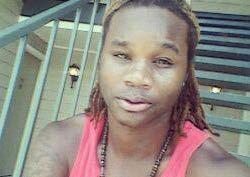

CRYSTAL WILLIS
Crystal Willis from University of Phoenix strongly believes that in New Orleans, employees are not paid based on their value.
ANTONIO MERRICK
Antonio Merrick from Dillard University would like to see more businesses offer entry level positions.
TERRICA ARD
Terrica Ard wants to see the day businesses offer equal jobs and equal pay for both women and men who worked hard to earn a degree.
RONALD RICHARDSON
Ronald Richardson from Delgado Community College thinks that there should programs in schools that teach students effective communication skills, which will enable them to navigate the business world on a more level playing field.
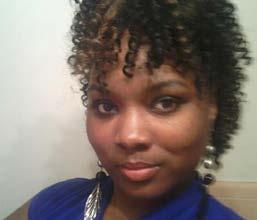



GEISHA BARNES
Geisha Barnes, also from Tulane University stated, “I would like to see more corporate opportunities for women of color.”
 DE RON BROOKS
DE RON BROOKS

Chris Green from Nicholls State University states, “I’d like to see programs that offer starter business loans for recent college graduates who plan to start a small business.”
CHRIS GREEN

Kyle Andrews from Nicholls State University would like to see more government funded internships as well as a social network dedicated solely to careers. The network would allow people with similar majors to exchange ideas, plans, and experiences.”
KYLE ANDREWS

Daniel Green, a high school sophomore believes, “The city should provide a place for local street musicians in the city to connect with job opportunities. There are many high school students who are in bands or choruses, who may not be able to attend college. This would afford them a job opportunity in a field that they are familiar with.”
DANIEL GREEN


Marlon Green from Nicholls State University thinks, “City government should take advantage of the our massive tourist attracting events like The Essence Festival, Bayou Classic, and Mardi Gras to promote small businesses. The city should direct event coordinators to our small businesses. The city should also offer tax breaks to major companies that make working with local small businesses a priority.”
MARLON GREEN
La’Toya Green, a New Orleans native and recent college graduate would like to see more Design/Technology internships, as well as entry level jobs for college students.
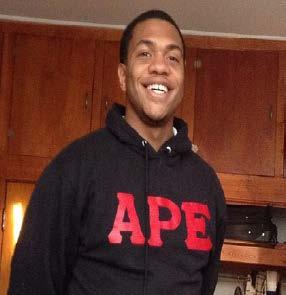
Earnest Lumpkins of Xavier University would like to see more accounting opportunities.
EARNEST LUMPKINS
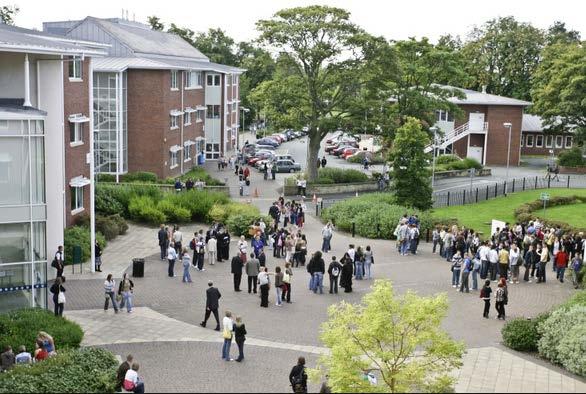

Joshua Bartholomew of Saint Leo University said, “This city is growing so fast compared to when I was a senior in high school. My goal is to work for a Fortune 500, so I hope that New Orleans has more Fortune 500 companies by the time I graduate.”



Reuben Hogan of Washington University of Saint Louis would like to see more medical research opportunities
Gary Aubert of Louisiana State University would love to see New Orleans advance in the fashion industry by supporting and encouraging locals to start their own clothing lines.
GARY AUBERT
Tineka Ware of Southern University of New Orleans would like to see New Orleans offer graduating seniors jobs in their fields so they can receive a job as soon as they graduate. “I believe all graduates should have a job waiting for them right after graduation.”
LA’ TOYA GREEN
ERNEST LUMPKINS
JOSHUA BARTHOLOMEW
REUBEN HOGAN
TINEKA WARE
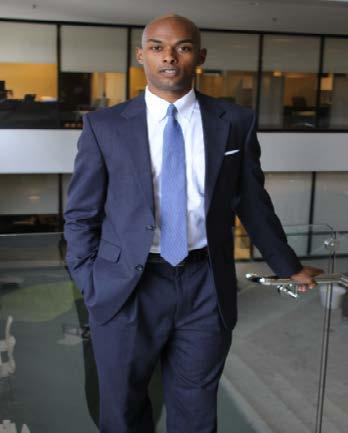

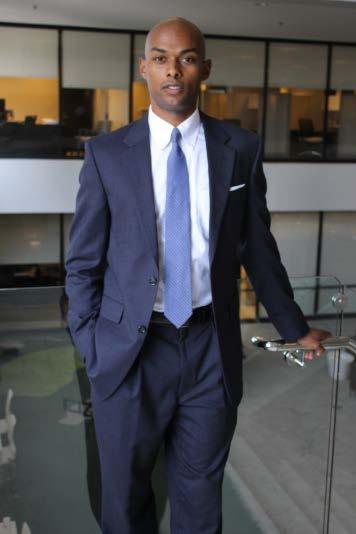
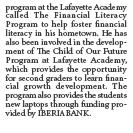


 -Alisa Lindsey
-Alisa Lindsey
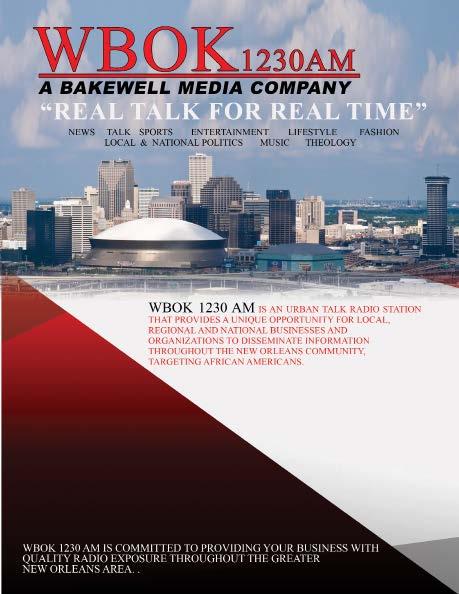
MINORITY REPORT 2014 | 21
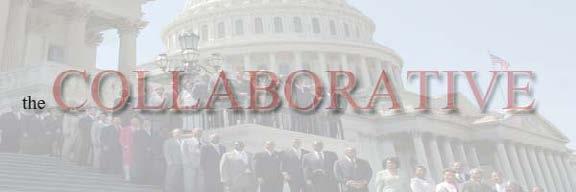
The Collaborative 504.com
The Collaborative is a group of small business owners who share a common purpose: the acquisition of economic parity and equity for all local, small and disadvantaged businesses in the City of New Orleans.
When asked to describe The Collaborative here is what members had to say:
The Collaborative means working together with unity, focus, and determination. –Deborah W. Gould
The collaborative is a group that I can come to and have a very engaging conversation about issues concerning equity and opportunity for our company. –William “Bill” Lewis
The collaborative represents African-American owned businesses that have come together to intervene on behalf of a large cadre of businesses who have been traditionally at the forefront of the economic upswing of the great city of New Orleans. –Eugene Ben
The Collaborative means that together we are a team. –Demetris Lawson
The Collaborative serves as a vital resource for small businesses and DBE (DEFINE DBE) firms, while allowing them to gain and gather information to implement into their businesses. –Geneva Coleman
The Collaborative gives DBE contractors unified voices that they have never had before. We have core goals and have seen progress. –Glen Gaines
The members said that the advantages of joining The Collaborative are that:
It gives an opportunity to discuss problems and concerns with like minded people and entrepreneurs. –William “Bill” Lewis
The Collaborative has allowed me to filter out like businesses that trail blaze in securing opportunities in areas that have been largely unsecured. –Eugene Ben
They said this about the role of Black Businesses:
We should hire folks from our community in order to make a viable living. Another role we have is to provide mentorship to our youth. –Randolph Scott
What is your business philosophy or any other philosophies that you would like to share in imparting the message?
“Do it right the first time, on time, every time, and be effective” –Geneva Coleman
“Peace doesn’t pay, equity does and equity builds peace.” –Joe Gould
meetings. –Debra Gould
The adage that we are all socially our brother’s keepers, whether you look at it from a biblical stand point or not, empowers us to foster the component of economic justice. –Eugene Ben
What can the Collaborative do to make an impact for graduating High School and College students when they graduate?
The Collaborative should continue to lay the foundation for the youth in this city. The kids can take advantage of what is being done, thus allowing them to walk in, take the ball, and run with it! –Glen Gaines
I would like to see the influx of young fresh ideas and new entrepreneurs come and get a fundamental understanding of what The Collaborative has worked towards, and to take it to as many levels as possible going forward. –Geneva Coleman
Interview by: La’Toya Green
What can we do to spread the word about the Collaborative 504?
Speak of the benefits, encourage people to visit the website, forward emails to fellow business owners, and invite people to the

The Collaborative serves as a vital resource for small businesses and DBE (DEFINE DBE) firms, while allowing them to gain and gather information to implement into their businesses.

The collaborative represents African-American owned businesses that have come together to intervene on behalf of a large cadre of businesses who have been traditionally at the forefront of the economic upswing of the great city of New Orleans. –Eugene Ben

“Peace doesn’t pay, equity does and equity builds peace.”
–Joe Gould

The Collaborative means working together with unity, focus, and determinion.
–Deborah W. Gould

We should hire folks from our community in order to make a viable living. Another role we have is to provide mentorship to our youth. –Randolph Scott

The collaborative is a group that I can come to and have a very engaging conversation about issues concerning equity and opportunity for our company. –William “Bill”
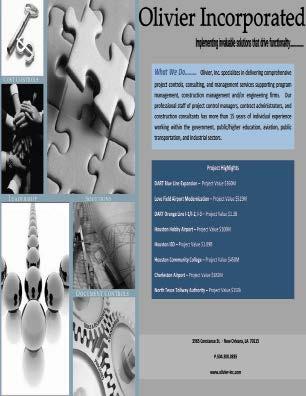

22 2014 MINORITY REPORT 2014 | 23
Lewis
–Geneva Coleman

HOW TO HOLLYWOOD SOUTH
Once limited to smaller towns like Baton Rouge, Shreveport, and Natchitoches; in recent years a walk down many streets in New Orleans has increasingly become akin to stepping onto a Hollywood sound stage. As we drive to work in the CBD, or ride the streetcars down St. Charles, a familiar sight along the avenues are trailers, trucks, “super-techy” equipment, road blocks, and parking lots that have been transformed into base camps for crews working on the many feature films and television programs thanks to producers who recognize the many advantages of filming in New Orleans.
An added bonus is he boost to the local economy via the rental of apartments, private residences, hotels, and local businesses for use as housing, and because the beauty and charm provide the right setting for key scenes in the actual production. So, you may wonder, how do I get involved in this fast-paced, growing world of Hollywood South? It’s not as difficult as you may think.
Behind the Scenes:
Have an idea for a movie? You’ll need to write the script and then sell. If you are successful, pre-production begins, followed by production, and post production. Learn the steps here: www.screenwriters.meetup.com www.filmtaxincentives.com
Becoming a crew member: You must submit a resume. Remember, sometimes less is more, so keep it short and sweet. As in ONE page. Also, DO NOT lie. Lack of experience is okay, and references are optional. Email your resume to the appropriate production email address of the film or show you want to work on. Be sure to include your contact info in the email.
Helpful Links:
http://www.filmcrewpro.com www.filmneworleans.org www.louisianaentertainment.gov www.docstoc.com www.filminglouisiana.com
Providing your services: When films come to town they need a variety of services, and are encour-
aged to do so through Louisiana’s tax incentives. When marketing your business be clear about what services you offer.
Bid competitively, and provide discounts when possible, as production companies like to save money. Research so you will know which departments could use your services.
www.filmneworleans.org www.louisianaentertainment.gov
Using your venue/location: Would you like to use your business, home, or office as a filming location? Take pictures of your property, write a description, email the photos and description, and your contact info to kagunnell@nola.gov
For houses/apartments: You must complete the appropriate application on www. filmneworleans.org. Leases will be short term between 2-4 months. A “Turnkey” property, where everything is included such as utilities, furniture, and internet is ideal.
www.filmneworleans.org www.louisianaentertainment.gov
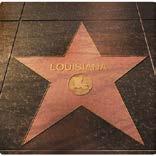
Becoming an Actor:
If you would prefer to be in front of the camera here are steps you need to take to work as an extra or a career stage actor. If you have no acting experience, try getting some by working as an extra, working on student films, or “no budget films.” This will enable to you build relationships with people in the industry such as; cameramen, screenwriters, directors, and editors. You can then use the footage from the student and “no budget” films to create a reel. Another important step to take is to get professional headshots. This is very important because this represents who you are. Lastly, get an agent. You will need an agent to audition for principal roles. www.acclaimtalent.com www.avatalentagency.com www.fameagency.com www.lousianawardagency.com www.delcorralmodel.com www.wilhelminabrown.com www.landrumcreation.smugmug.com www.danagencyneworleans.com www.filminglouisiana.com
You can find resources, contact info, lists of projects in pre production/production and information at www.filmneworleans. com.








THE BUSINESS OF BEAUTY
What better way to sum up the fashion and entertainment industry than with this quote credited to Michael Kors, world-renowned fashion designer and judge of the hit television show, “Project Runway.”
As far back as I can remember, I’ve been an entertainer. I have vivid memories of playing dress up and strutting throughout the house modelling for family and friends.
However, the confidence to finally immerse myself in this industry didn’t develop until my sophomore year of college while attending LSU in Baton Rouge. Not happy with my current situation, I decided to revert back to what I enjoyed most; fashion and entertaining.
I began researching fashion events and learned that NOLA Fashion Week was preparing runway shows for its upcoming season. Following my first profession-
al walk down the runway, I was completely addicted. Short ly thereafter, I auditioned for America’s Next Top Model’s College Edition,” and made it all the way to the finals. Although I did not win the competition, the show taught me valuable lessons required for progression in this industry. The experience taught me how to lose gracefully, and to use the lessons learned to my advantage. “America’s Next Top Model” also taught me that a medical career was not what I truly wanted. What I wanted was to contribute to the fashion in dustry. Thanks, Tyra!
Fashion and modeling are ex tremely tough fields. Throughout my journey, I often questioned myself asking, “Why would I choose to pursue a career that challenges my self –confidence?”
“Why is it a good idea to spend

hours strategizing and building to achieve the next level of success?”
The response to these questions was always,”because this is my passion.”
I’m often asked by others interested in the field how to break into the fashion industry. There are many avenues to take but my initial responses are, “Is this your passion?” and “Are you prepared
to work years before any real progress can be made?” My advice to anyone looking to make an impression on the fashion scene is, be honest with yourself, invest time and money in your career, and understand your brand.
I was completely naïve to what it really meant to become a fashion model. I had to learn as I progressed from one job to the next. I can honestly say that I developed my career off of three very important words: Grind, Network, and Sacrifice. Any working model will tell you that it’s not always the prettiest girl, or the model with the

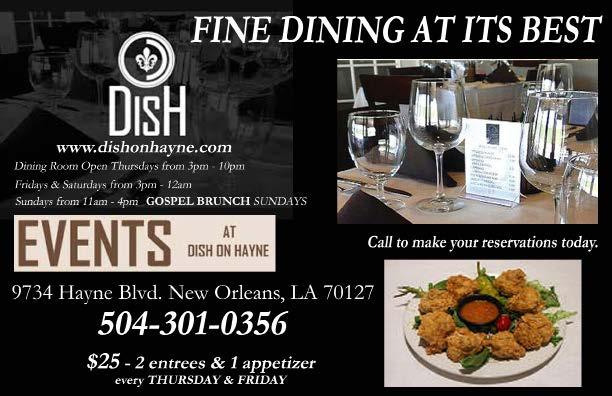
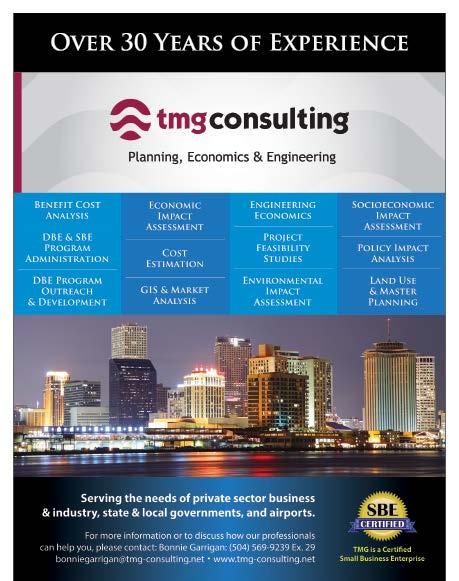 best body that gets the job. Rather, it’s the most dedicated one. -Darian Ellis
photograph by: Ron Carr
photograph by: Geovanni Velasquez
best body that gets the job. Rather, it’s the most dedicated one. -Darian Ellis
photograph by: Ron Carr
photograph by: Geovanni Velasquez
ANATOMY of an Entreprenuer
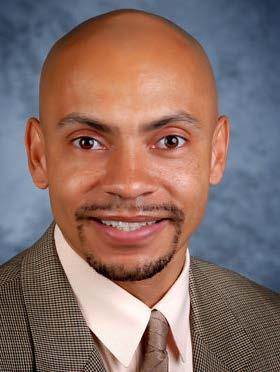
Upon completion of his bachelor’s at Indiana University, Mr. Patton ventured to New Orleans to continue his studies at the University of New Orleans, where he earned his MBA. Shortly after his arrival, Mr. Patton became frustrated and disturbed by the widespread lower-level of poverty he encountered in the City of New Orleans. That frustration motivated him, along with his partner, Eddie Bonner, to create Do-Wap Agency, LLC in 1999, the intent of which was to do things a little differently in the media field.
The initial goal was to introduce minority business to the magic world of cyberspace and help them got online. Determined to become something different the O.N.E. Methodology was created. The O.N.E Methodology is; simply the steps taken to deal with traditional marketing. Mr. Patton uses both, the S.W.A.T analysis as well as the O.N.E Methodology to make a change in the media field. Mr. Patton experienced some major impediments at the beginning of his career. New Orleans is not an easy place to make a difference if you are not a native. Not only was Mr. Patton new to New Orleans, he was also an entrepreneur. No matter how many business plans one can create, not too many people put their trust in an entrepreneur. Receiving the cold shoulder from corporate businesses and the media industry, the drive he possessed encouraged him to work hard. He knew that he had to build a reputation of his own and produce exactly what he said he will do. As an entrepreneur the hardest part is “balancing your team and their skill sets and the work that is in front you.” However, the most convenient part of being an entrepreneur is being time management. You are able to work things around your schedule, spend time with your family and yet still have a career that you are passionate about.
He later became a radio personality on the Garey and Anthony political talk radio show. However, hosting a radio show was only one way into where he wanted to be. He gained an audience and also respect from many. Later, as an entrepreneur he developed many other media outlets in New Orleans and the World Wide Web such as: Cajun Daily Deals, Offline Magazine, and NewOrleansBlack.com. In August 2005, Hurricane Katrina came and demolished the place New Orleans natives knew as home. Do-Wap Agency still returned to New Orleans with the passion to create and the commitment to succeed. Therefore Mr. Patton took advantage of the decrease in population and joined the Road Home campaign as well as the Recovery School District campaign. event where people would come and reunite with one another. First Fridays, LLC, became a very popular event in New Orleans and cultivated each year. First Fridays, became enormous and the last event housed fourteen-thousand people in the Mercedes Benz Superdome.Though the capital was amazing, even an entrepreneur knows how to say enough is enough. The event became too much and lost its original meaning, therefore it became the last First Friday, LLC event.
Moving forward with a new passion, Mr. Patton came up with SociaLife. SociaLife.us is a website designed to produce every event in a city near you available at just one touch. SociaLife also has a unique feature, “where you can roll V.I.P for nearly free.” The website sells a number of V.I.P tickets for half of retail value. The site also advertises models, calendars and twenty-two different categories to choose from. It also has a database of 70,000 people in the New Orleans region that are currently subscribed. The databased is updated daily so the count is Mr. Patton also never gave up on finding out why people in New Orleans including business owners still living in midle-class or even in poverty. He designed the Minority Report to fix the equity gap and the lack of fairness. The Minority Report is based
on three components: publications, website, and the actual release event. The uniqueness of the Minority Report is to have all DBE companies, listed in the same place, which is the first of its kind. Also on the website is the first of its kind to have all Request for Proposals listed on one website instead of searching on each certifying agency website. Do-Wap agency has recently partnered with Hayman Talent Production, who is based out of Los Angeles. Do-Wap is responsible for producing new talent for upcoming projects. So far Do-Wap agency has been very successful in producing the talent and getting them spots in the last movies. Recently some of Hayman talents were choosing for one of Kevin Harts’ latest film “Get Hard,” also starting comedian Will Ferrell. Becoming an entrepreneur is not an easy task. DoWap wants the world to know that they have been a leader in technology related activities in the state from software development, web development and digital screens. “Yesterday’s future is here now.” The advice Mr. Patton has for any one that is determined to be an entrepreneur is; “first start with a business plan, pitch to investors and if they can’t raise the money then it’s probably not a good business plan.”
Recently Do-Wap has become a DBE company with the hopes it will create business for them in the government sector. The one thing Do-Wap agency would like to be known for is solving problems by using technology. -W. Anthony Patton, MBA
“It takes serious guts to become an entrepreneur, it’s a daily fight internal and external but if you stick through it, it is well worth it.” –W. Anthony Patton, MBA
 W. Anthony Patton, LLC was founded by Indiana native, Anthony Patton.
W. Anthony Patton, LLC was founded by Indiana native, Anthony Patton.

N EW O RLEANS REGIONAL
BUSINESS
7,000 ACRE STATE GEM
New Orleans is known and thought of for its music, culture, arts, architecture, and many more intricacies. While the visitors and newcomers may be introduced to the city through the businesses that drive tourism into the city, we tend to forget about the traditional business sector, the entities who drive new business opportunities, and those who work with governmental agencies to retain the businesses in New Orleans.
With that said, The Minority Report would like to formally introduce and connect our readers to the New Orleans Regional Business Park, one of the largest business parks in the state. The Louisiana legislature created the New Orleans Regional Business Park in 1979. The New Orleans Regional Business Park includes a 7000 acre tract of existing developments and shovel ready land. It boasts the availability of six intercontinental railway lines and exceptional truck lines. The park has access to the Intracoastal Waterway which is very appealing to anyone building vessels and needing access to the Gulf of Mexico and the Mississippi River.
With such an expansive area, the New Orleans Regional Business Park has nine Board Members whom address public improvements in the Park. The New Orleans Regional Business Park maintains valuable partnerships with the Port of New Orleans, the New Orleans Business Alliance and other governmental entities in order to expand marketing opportunities and attract new businesses.
Prior to Katrina, the center’s growth thrived on its development of on-site office solutions for upstart businesses. At that time, the Enterprise Center had an excess of 75 businesses utilizing the center in some way whether for office space, storage, warehousing, meeting space, seminars, etc. Center Business programs were catapulted by generous corporate sponsorships by the Harrah’s Corporation and Entergy. Efforts have been relaunched to attract new businesses.
Currently the Park includes eighty eight businesses and agencies, and they easily generate billions of dollars in sales, employ thousands of area and regional residents and pump substantial dollars into the tax base which covers supportive public services. Some of the employers include: Folger’s Coffee, Meyers Warehousing & Storage, LCI, Gulf Coast Intermodal, Trinity Yachts and many others.
Keith Thomas, Park Engineer, leads the monitoring and implementation of public initiatives for all Park businesses, as well as manages the Enterprise Center. NORBP’s work initiatives includes increasing and improving Park signage, street striping renewal, and beautification of Park entry points. The New Orleans Regional Business Park has been actively addressing illegal dumping problems in the area and has worked with the City of New Orleans and the New Orleans Police Department to prevent re-occurrence. A Clean Up Campaign is under way under NORBP advisement. These efforts are important to increase Park safety and quality of life for all business owners and the community. The NORBP consults with businesses on public improvements and looks for solutions to resolve concerns for businesses in the Park. The strength, dedication, and determination of the team is an additional resource that is priceless for businesses considering the State of Louisiana.
The Enterprise Center consists of 120,000 square feet of usable space divided between office and warehouse space. One of their most recent tenants included Ebb Tide, a subsidiary of Universal Studios, who just wrapped production in New Orleans. The production company used some of the 30,000 square feet of office space available in the Enterprise Center for their wardrobe, casting, and general office needs. This is the second film company to go into the Enterprise Center. The NORBP continues to secure both additional short-term film industry leases, as well as long-term tenant leases. The space may be offered at a reduced rate compared to other parks in the area to stimulate long-term industry growth in New Orleans.
Meyers Warehousing & Storage has leased space in the New Orleans Regional Business Park since 1976 and has also utilized additional warehousing at The Enterprise Center for 10 years. Milton and Clovi-
na Meyers began warehousing in a small 20,000 square foot building and have worked to develop their family business over the past 34 years with a total storage capacity exceeding 195,000 square feet, a three acre container yard and a growing fleet. They hire trucking experts that own their own rigs and they hire their own experienced fleet of drivers to deliver products to many well known businesses. Meyers, as a family owned business, still strives to meet and exceed the expectations of their customers & employees and now, they also have operations in Florida and Georgia.
So the next time you are in the City of New Orleans visit The New Orleans Regional Business Park; it is an ideal place to do business. Not only does it have all the amenities needed: excellent location, skilled labor, and acres of land; but also, businesses enjoy many incentives and opportunities including: Property Tax Exemptions for Manufacturing facilities Tax Credit for Jobs Freeport Laws for Goods in Transit Enterprise Zones Inventory Tax Credits Industrial Revenue Bonds Venture Capital Programs.
Contact Keith Thomas at the Enterprise Center by calling 504-254-4603 or 504338-4935. He would be happy to give you a tour of the facility or consulting with you on other opportunities in the Park. The New Orleans Regional Business Park’s website is www.norbp.com.

MINORITY REPORT 2014 | 31
NORBP
PARK
Securing the Future with Good Deeds and Technology
Marian H. Pierre started her business with $50 borrowed from a friend. She took the money and headed to a one-stop incorporation service and formed Crescent and Guardian Inc., (CGI). The company started with four employees, all family, including Pierre. Now, CGI has an office in Dallas and New Orleans and is a growing brand with over 150 employees.“I wanted to control my own destiny,” said Pierre, a proud 64-year-old who put back 30 years as a government employee. After her sons departed for college, she took the risk of self-employment. Since 1993, CGI has provided services for federal, state, municipal, commercial, energy and critical infrastructure clients. CGI is the first woman, multi-million dollar owned professional security firm in the three-state region. However, Pierre is not satisfied with past achievements and moves forward.
“The future is endless, it’s technology,” Pierre said, “I call it fusion, physical security with electronics.” She saw this trend ten years ago and said people won’t be replaced, but their presence will be enhanced. Her foresight and innovation has established CGI as the only local company that offers security, analytics, cameras and access control. Last November, at the American Public Transportation Authority convention in New Orleans, CGI unveiled the Vehicle Permission Switch, keyless ignition for secure access to public transportation vehicles so only the operator assigned can operate it. CGI doesn’t manufacture, but is always looking for new products and partners to develop a need.
The ability to work with others and the help of family and friends has been a factor in her success. In the beginning, one of her nephews, was the first guard and created the logo. Pierre passed out cards, worked the phones during the day and had a detail at night. Within the first seven months, she signed her first million dollar contract, a feature the financial projections said would take five to seven years. However, the company had to overcome obstacles made easier by establish an organizational structure. But, the foundation of her entrepreneurism was built growing up in the ninth ward.
“When I was growing up they had more black business owners than they do now,” she said. Pierre recalls seeing the change happen and said New Orleans is regressive and not progressive.

“Integration hurt us,” she said. “We thought it was better, we made other people rich when we stopped shopping at the mom and pop stores in the neighborhood.” Pierre said what’s worse is the African-American’s forget the community once they arrive at success. Last October, Pierre landed in Washington D.C., as a 2011 Woman to watch from the Women Impacting Public Policy (WHIPP) organization and is the first woman from New Orleans to receive the honor.
She’s received numerous honors, but one of the most important things in her office doesn’t hang from her walls—it sits on her desk. Pierre has a daily reminder of mantras: “We make a living by what we get; we make a life by what we give.” In 1999, Pierre helped start Women Inc., that aims to empower young women among multitudes of other community endeavors. “The only thing I want people to remember about me” she said, “is that I tried to make a difference in other people’s lives and I took someone with me. -L. Kasimu Harris

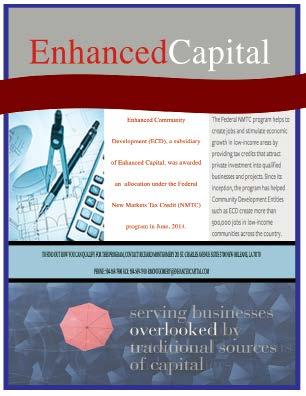
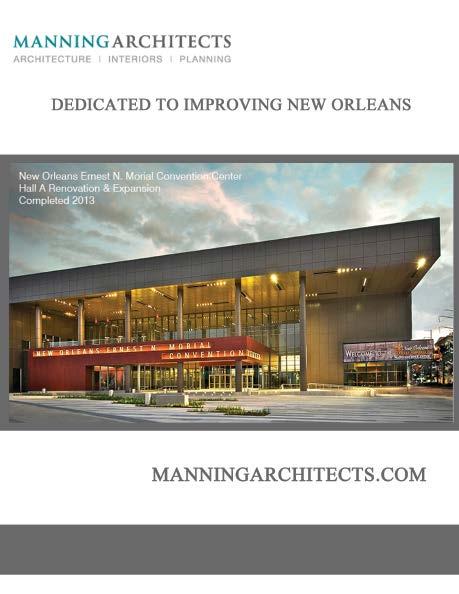 Marian Pierre, CEO/Founder
Marian Pierre, CEO/Founder
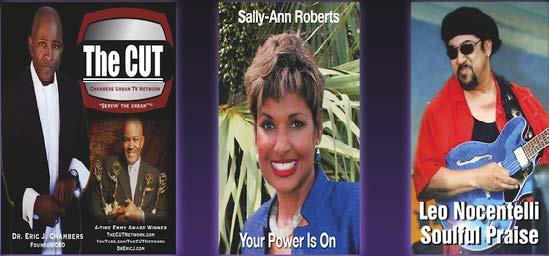

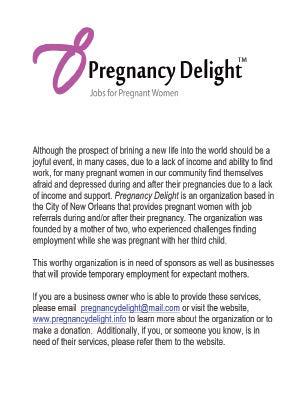
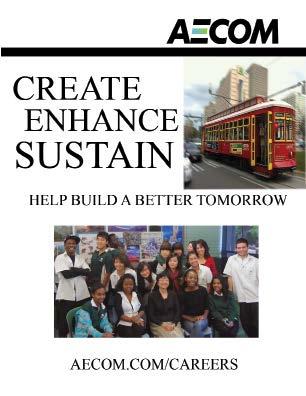
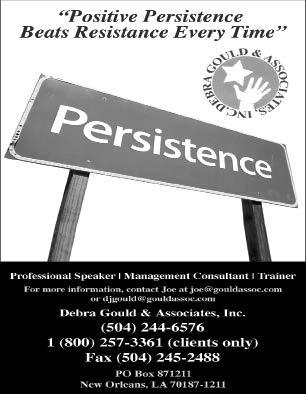
34 2014
NOLA JOB DISCONNECT
BY: W. ANTHONY PATTON M.B.A.
For many recent and upcoming graduates, the job market is an intimidating world that is increasingly difficult to navigate. Because the job market is so competitive, one must approach it armed with a well-written resume, a vast degree of experience, stalwart people skills, and an incessant drive to get ahead. Not all opportunities are easy to come by; and a large percentage of the opportunities presented for young minority college students are coupled with a strenuous uphill climb.
Considering that the economy in the New Orleans region is at an all time high, why are our graduates’ spirits at an all time low? College students from Xavier, Loyola, Dillard, Tulane, and Southeastern College all share the common dilemma of not being able to find good-paying jobs that are in line with their majors in the greater New Orleans area. After speaking with students from local colleges, one can get a more qualifying notion of what students actually go through when trying to locate viable jobs in their field of study. Many consider a move to Atlanta, Houston, Dallas, New York, or Los Angeles in order to find suitable work.
“It is definitely difficult for the average black student to find a job after graduation. I decided to not look for a job in New Orleans because the economy is so low, jobs are scarce, and over 65% of my friends who did find jobs, are not working in their field,” says Sherese Nix, a Dillard University graduate.
But wait; didn’t I just read in Forbes Magazine that New Orleans is #1 on its Top Cities for Information Jobs, #2 on the Best Big Cities for Jobs list? Additionally, Forbes referred to the Louisiana digital media tax credits as the “best tax incentives in the U.S.” So, why are our recent college graduates having such a difficult time finding career opportunities in New Orleans? It seems that current opportunities between the haves and have nots remain the same as the previous 200 years of our city’s great opportunity divide.
Recent national listings and statistics reveal that New Orleans’ growth has
been heavily influenced by growing business and entrepreneurial activities. Last year, Louisiana was ranked the eighth state for entrepreneurial activity on the Kauffman index, and more recent data shows that New Orleans is 40 percent above the national average for entrepreneurial activity. Details, Forbes and Inc.com have also recognized New Orleans as one of the beststart-up cities in America, taking into account the community, our resources, lifestyle, and the overall rate of growth.
Other rankings include #1 in the U.S. for biggest brain magnets by Forbes, #2 best large city for jobs by Forbes, and #16 best city for college graduates. The Daily Beast, and Business Facilities Magazine have ranked Louisiana as #2 in growth potential and #7 in business climate respectively. http://siliconbayounews. com/2011/09/20/vote-new-orleans-for-top-young-entrepreneur-cities-of-2011/. Also, according to the Federal Bureau of Labor Statistics, the local economy added more than 6,000 new jobs in the past year. New Orleans’ unemployment rate now stands at 6.4%, which is more than two points lower than the national average of 8.5%. A study by LSU says, “we can expect to see more job growth at least through 2018.” Jon Huffman of WGNO News, 11:32 a.m. CST, January 27, 2012.It is indeed a fact that black college students are at a disproportionate loss for jobs in comparison to whites, even those whites who have not gone to college. For most black students, finding a job during such an economic downturn can mean the difference between success and failure; but with the proper degree of preparedness and an endless drive, any odds are surmountable, even in the job market. We need to begin the conversation of INCLUSION, before we lose all of our future potential.
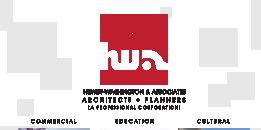




36 2014 MINORITY REPORT 2014 | 37
Looking to Start A NON- PROFIT?
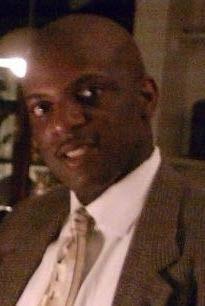
Non-profit organizations, also known as charitable, non-governmental, tax-exempt, or in some cases, corporate entities, are formed for the sole purpose of fulfilling a mission to improve the common good of our community without focusing on monetary profit. Nonprofits are guided by their charitable vision and led by their Board of Directors, which will hire additional staff if needed, and create a strategic direction (or plan of action) under which the organization will operate.
Nonprofits serve as a vehicle for those who want to be active servants in their community by working to make a difference in the lives of others. Their primary focus is to strengthen the community by creating programs, employment, and educational opportunities to enhance the lives of the citizens in the community. Additionally, nonprofits are committed to assisting families, businesses, and communities to ensure that everyone has an economic opportunity to reach their full potential.
Familiar nonprofit organizations are; charitable, educational, religious, day care centers, food banks, low-income housing organizations, theatre groups, universities, social clubs, fraternities/sororities, and mental health organizations.
If you have the drive, passion and desire to serve your community, perhaps starting a nonprofit is for you. A good place to start is to research your idea to determine the need in your community for the service you wish to provide. Remember, nonprofits are community-based organizations composed of individuals throughout the community coming together for one common goal which is to plant a seed in the community; a seed of hope, a seed of prosperity, and a seed of knowledge.
Charles Williams, CEO
The Williams Group NOLA

HOW DO WE USE OUR FAITH TO STRENGTHEN OUR ECONOMICS?
African – American, Black, or whatever moniker we may want to give ourselves, are one of themost Religious groups and Cultures in the world. Every Sunday all across America will fill our places of worship from the Choir stand to the last pew in the church. We tithe and fulfill our religious obligations even when we can barely take care of ourselves and in our community too often we rely on just our faith, and not the kind of action that God says should accompany a believer. (Deuteronomy 8: 18, remembrance of the God who gives man the power to get wealth is emphasized. Wealth here is considered as a means to establish God’s covenant.) The poverty statistics that are attached to African- Americans show that weather it’s the disparity gap in income, or higher unemployment, access to affordable homes, or capital for small and emerging businesses, when the economy is good we’re not doing as well as others, and when the economyis in the kind of condition it’s in right now we suffer the kind of economic turmoil that places us last on the wealth chart. When I think about New Orleans and African- American businesses that have emerged post Katrina, Abide Home Health comes to mind. Just think if New Orleans had more AfricanAmerican businesses that could employ people from its community, and give them the kind of economic foundation that companies like Abide provides. What could we predict? Well, less crime, better education, more homeownership, more economic independence, and less reliance on Government services. Business owners like Lisa Crinel create the kind of freedom that allows our families to worship without worry! Because as prayerful and hopeful as we are the stress and worry to make ends meet, for basic survival adds to the Social Ills that financially cripple the African-American Community all over America. Now I’m not suggesting
By: OLIVER M. THOMAS Jr.
that we should put financial wealth before spiritual wealth, but I am saying that we should use our money and our investments to improve the quality of life and create economic independence in our community.
Just think Black folk praying to God to be lifted up to Heaven, and using our money to lift us out of Poverty. Wouldn’t that be a new dynamic! A strategy to use most of the 1.1 trillion dollars we spend annually, which makes us the 12th largest nation in the world as resources to build stronger families and more self-sufficient communities for our own people. In the Book of Matthew Chap.7 verse 7& 8, the scripture encourages us to knock on Heaven’s door and ask for God’s blessing, because God gives to those who ask. As practicing believers we are willing to knockon God’s door all day and night, and aggressively plead with our Lord, and even make worldly demands on our Savior, but we won’t demand the same kind of fairness and access to wealthfrom Political and Business Leaders. What is about the African-American that prohibits us from believing that we are worthy of our own investment? Some say Willie Lynch, and those ole, “ How to maintain a Slave “manifesto’s still condition our thinking and our actions hundreds of years later, some say economic policies, and unwritten rules that redline our communities from access to capital play a major part every day. There are I’m sure more reasons than we can come to terms with, but it’s also safe to say that though many have conditioned ourselves to be Christians and live a Godly life, we haven’t maintained that same attitude when it comes to investing in our own people. We have a Black President, and
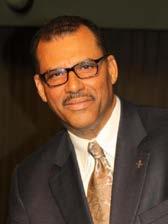
high black unemployment, we have a city like New Orleans with a majority African-American population, and extreme poverty amongst our people with one of the highest income gaps between white and Black in the nation. So how then do we use our faith to strengthen our economics? Should the same Black Church that preached boycotting those who would hose and abuse us, now teach us how to keep our money in our community for more than 8hrs. so we could create our own businesses and jobs. Should whatever families are left in our community take on the responsibility of teaching the next generation to invest in Black people in spite of what they’ve been conditioned to believe. In the words of Lisa Crinel owner and CEO of Crinel Enterprises, “ As an African-American business our faith has to be our foundation, and we have to be mindful of the Economic and Employment condition of our people. At Abide and Lace we operate with God being the head of our business, and it’s our obligation to make sure our people (His People) are empowered, clothed, and fed. This provision comes from God, and we will continue to be mindful and prayerful for all of our families during these difficult economic times (Lisa Crinel.)
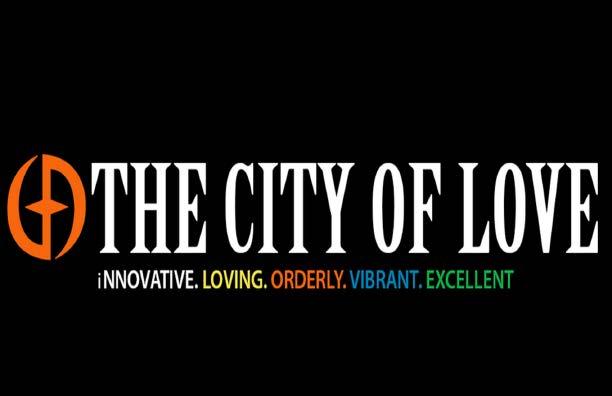
38 2014

The Purpose of the Publication, Website, & Launch Event
Background and Purpose:
Since 2005, the city of New Orleans has been described in two eras: “before the storm,” and “after the storm.” One of the greatest triumphs of New Orleans, before the storm, was that the small business community thrived; but after the storm, it was the small business community that was hurt the most. It was from this observation that the “Minority Report” was created through the leadership of W. Anthony Patton, MBA and the Do-WAP Agency. “Equity is the driving force of business development. We have to believe there is an equal chance to obtain the American Dream”, says Patton.
June 20, 2013, the New Orleans City Council voted unanimously to approve extensive changes to the city’s Disadvantaged Business Enterprise program. Mayor Mitch Landrieu was joined by City Council members and business leaders as he signed into law an ordinance that significantly reforms the City’s disadvantaged business enterprise (DBE) program to improve fairness and consistency and strengthen compliance with City’s overall 35% DBE participation goal for public contracts.
This new law is a major milestone that demonstrates the City’s commitment to inclusion, fairness and accountability,” said Barbara Major, a member of a business advocacy group called The Collaborative. “As we continue rebuilding the community, it’s critically important to make sure our small and marginalized businesses are at the table and have opportunities for public work.”
The City of New Orleans establishes an overall goal of thirty-five percent (35%) for utilization of socially and economically disadvantaged businesses for all public spending or private projects that utilize public funding and/or incentives. The city is currently proposing to add an affirmative provision to the Charter
requiring that the City establish and maintain a DBE Program. This proposed charter change is the next step that will make the reforms that have been implemented sustainable and long term.
Product Deliverables
THE MINORITY REPORT BI-ANNUAL PUBLICATION What better place is there for government agencies and large businesses that are privately-owned to centrally locate professional businesses, products and services from the small local business communities of this area? The Minority Report is a Resource Guide, not just for one-time perusal, but a life guide to doing good business in the metro area of New Orleans.
MINORITYREPORTONLINE.com
The First Supplier Diversity online Match Making Portal designed to assist businesses with access to Opportunities they may otherwise be uninformed. The corporate and Governmental Agencies will appreciate the breadth of business access for contracting opportunities and improved RFP response by localized and diverse firms.

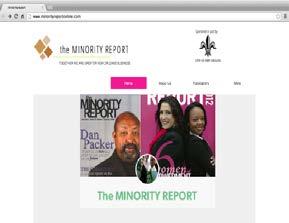
LAUNCH EVENT
On Friday, October 3, 2014,starting at 5pm, at the Hyatt Regency Hotel, 601 Loyola Street, New Orleans, LA 70112, over 100 local businesses and 20 plus dignitaries and political partners will take part in a social and happy hour mixer. Businesses will have the opportunity to display their services, and promote their products, in addition to having an opportunity to introduce themselves to over 100 business clients and customers whom they may have never encountered, otherwise.

MINORITY REPORT 2014 | 41

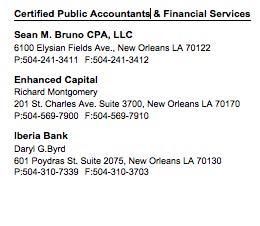



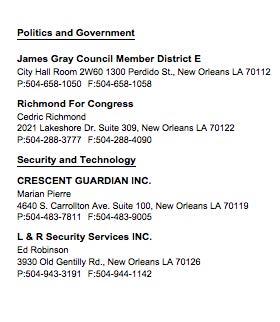


42 2014 MINORITY REPORT 2014 | 43 Sponsored Business Directory See Insert for a complete list of all Certified DBE & SLDBE Firms





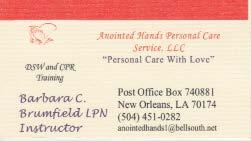

44 2014
CLOSING REMARKS FROM THE PUBLISHER
DID YOU KNOW?
(According to The New Orleans Index at Eight, published by Greater New Orleans Community Data Center.)
With 27 percent of all businesses being minority-owned in 2007, the New Orleans metro had a larger share of minority-owned businesses relative to its minority population than the nation as a whole. Yet, at a steady 2 percent of all receipts, the returns to these businesses have a consistently fallen below the national average.
In New Orleans Parish, the jail incarceration rate has decreased significantly post-Katrina from 1,251 per 100,000 in population in 2004 to 912 per 100,000 in 2011, but is still significantly higher than the rest of the New Orleans metro and nearly four times the national rate.
While employment rates across the U.S. and comparison metros have fallen for white men and black men since 1980s, the effect on black men had been more severe in the New Orleans metro where barely half (53 percent) of working age black men employed in 2011 compared to 61 percent of black men in aspirational metros and 75 percent of white men locally.
Am I My Brother’s Keeper?
If I were to ask you for the most memorable line from 1991’s gangster flick “New Jack City,” starring Wesley Snipes, without hesitation a vast majority would respond, “Am I my brother’s keeper?”.
The motto of the film’s CMB, [Cash Money Brothers] though heard several times in the beginning of the film, was last recited by G-Money when he and his mentor, Nino, came to a pivotal crossroad in their relationship. Filled with distrust and desperation G-Money, on bended knee, looks into Nino’s eyes and in a last-ditch effort to save his own life asks the critical question - “Am my brother’s keeper?” With a lone tear running down his cheek, Nino Brown calmly responds, “Yes I am!” as lead speeds from the barrel of his 367 caliber straight to the heart of his once best friend and comrade, who was instrumental in the building and rapid growth of the CMB enterprise. The question remains, Why do we fire bullets of destruction into our own hearts (literally), businesses, and homes? Although a work of fiction, there are times when scenes from this movie are figuratively and literally played out in reality as we (black business men & women) are guilty of firing the very weapons (negative talk, back biting, distrust, and more) that cause the demise of too many of our OWN African-American owned businesses. What is it about ourselves that makes us act out in such negative and self-destructive manners? From where does this fear and self-hatred derive? Do we have a genetic predisposition toward self-destruction? Is this behavior nature, or nurture? We ask these questions to provoke thought and dialogue, and we want your responses to support much needed change.
The goal of the Minority Report and a locally owned group in New Orleans entitled the Collaborative are to SUPPORT each other via our trust, monies, and our business. We encourage collaboration, coming together, business development initiatives, and plain out honor and respect. We know from 15 years in business experience and over 200 employees, interns, and initiatives just how hard it is to simply stay open, let alone grow, encourage each other, and more. Please consider this publication our part in beginning the dialogue of togetherness, trust, and future growth as ONE community. In This Issue: We highlight the successes of our best and brightest, future needs to keep our talented young graduates, and misconceptions of the growing landscape here in New Orleans. We also feature the kick-off of our Launch Event and honor our local black media partners for sharing valuable information and data to our communities. Finally, we still carry the charge of being the most comprehensive online database and RFP Directory one can find in the region, please go online and utilize our services, www.minorityreportonline.com. I’d like to take a special liberty to dedicate this publication to my mother, Mary L. Clarke. She passed this past fall 2014 and was truly the best friend, guidance counselor, and most honorable woman I have ever known. I trust her guidance has led me to be concerned about equity and issues that address those who have little or no voice. Thank You Mom, we all love and Miss You Dearly!
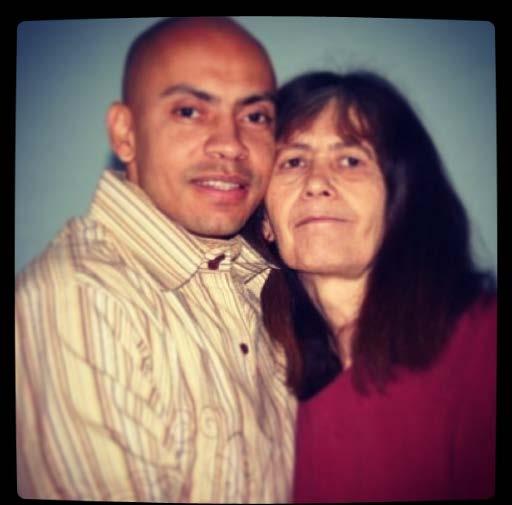
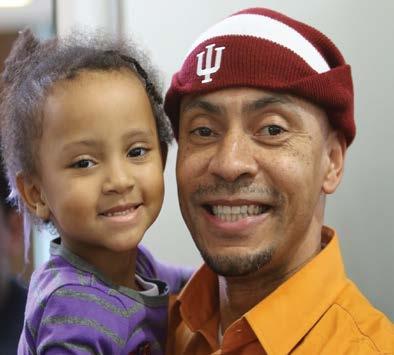

Thank you in advance,
W. Anthony Patton, MBA
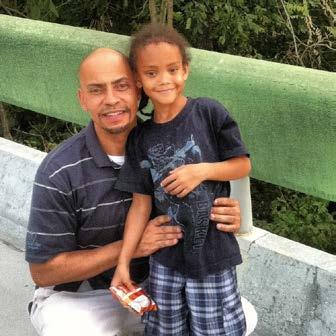

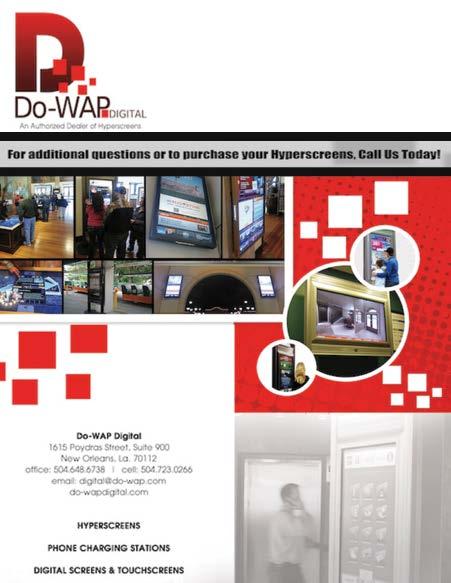
“






















 DE RON BROOKS
DE RON BROOKS

















 -Alisa Lindsey
-Alisa Lindsey























 best body that gets the job. Rather, it’s the most dedicated one. -Darian Ellis
photograph by: Ron Carr
photograph by: Geovanni Velasquez
best body that gets the job. Rather, it’s the most dedicated one. -Darian Ellis
photograph by: Ron Carr
photograph by: Geovanni Velasquez

 W. Anthony Patton, LLC was founded by Indiana native, Anthony Patton.
W. Anthony Patton, LLC was founded by Indiana native, Anthony Patton.





 Marian Pierre, CEO/Founder
Marian Pierre, CEO/Founder





































